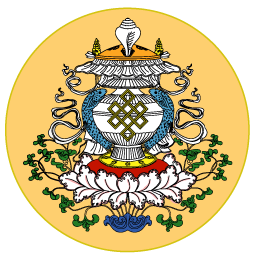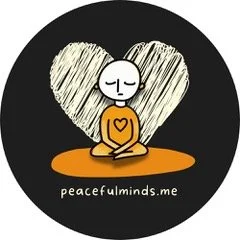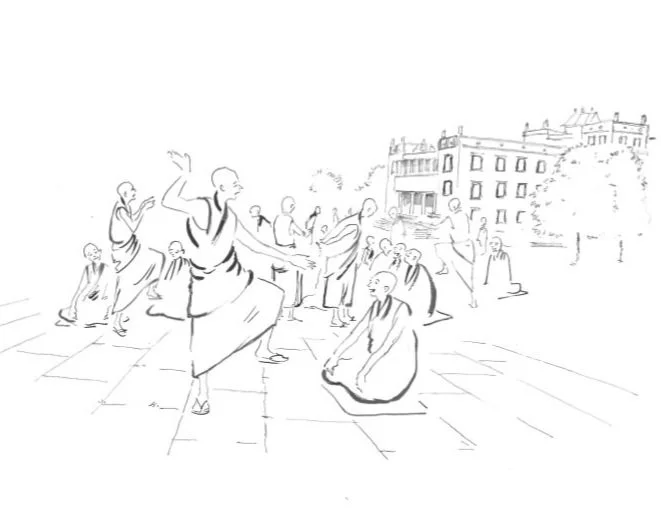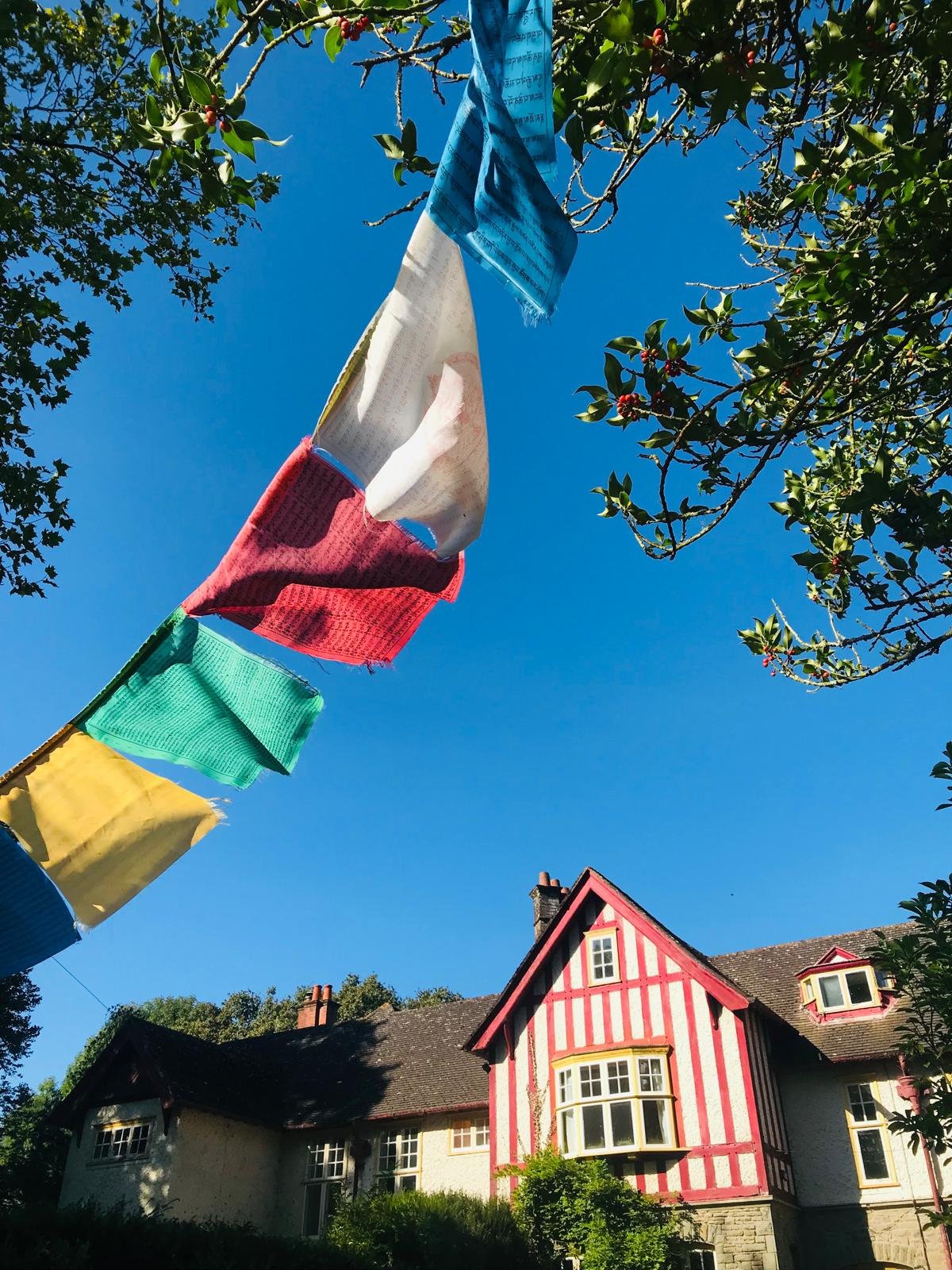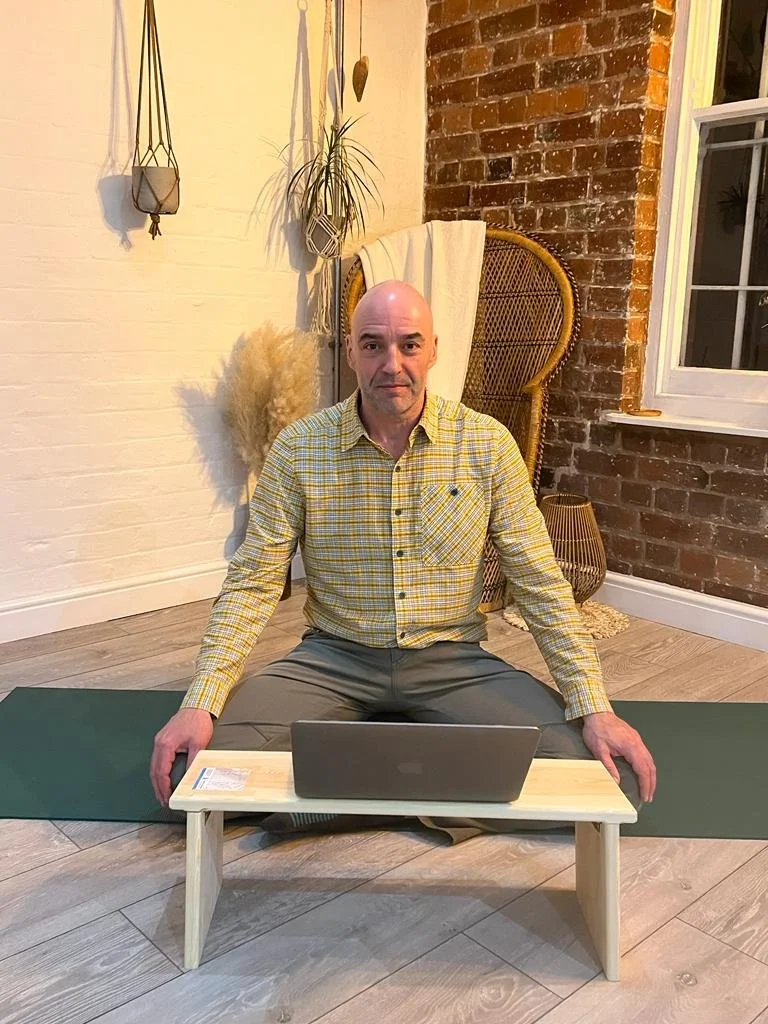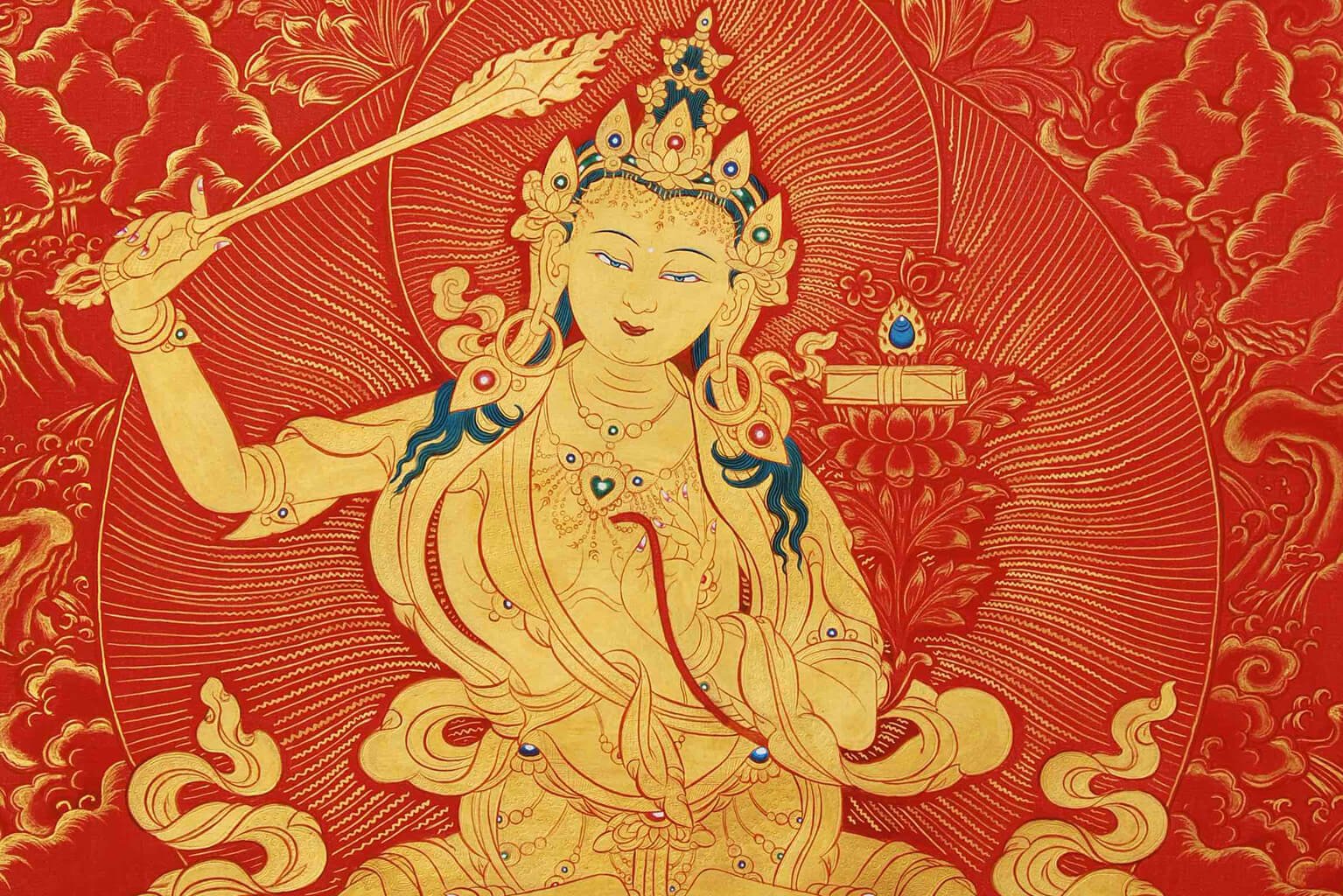
Sharpening the Sword of Wisdom
Learn Tibetan Debate & Philosophy with Lam Rim Buddhist Centre
Join a special course on Tibetan Buddhist Debate & Philosophy
Tibetan Buddhist debate trains us to use critical analysis to determine how the physical world, the mind, and the self exist. By developing our own path of reasoning, we can actualise the wisdom that is the natural purity of the mind. This wisdom empowers us to overcome ignorance, the root cause of all suffering, and to attain enlightenment.
Four Modules Providing Foundational & Advanced Understanding Of Tibetan Buddhism
The course will teach how to debate and work through the study of four key modules that follow traditional study:
‘Small Topics’
Awareness & Knowledge
‘Middling Topics’
Logic & Reasoning
Online With Special In-Person Debate Events At Lam Rim Wales.
Classes will be held online with plenty of opportunity to ask questions and debate. Special in-person debate events will be arranged onsite at Lam Rim Buddhist Centre Wales.
Learn Debate Skills That Deepen Buddhist Practice & Applicable In Daily Life
Learn all the key stages of debate, correct reasoning and logic that greatly sharpens your understanding of Buddhism, in particular the understanding of ‘emptiness’. Skills learned support other areas of life, helping to increase ability for analytical thinking and analysis.
In Partnership with
Peaceful Minds
What is Tibetan Debate?
Tibetan debate is a unique and dynamic method of philosophical inquiry practiced in Tibetan Buddhist education, designed to sharpen understanding and deepen our insight into Buddha’s teachings.
It involves a lively exchange between two roles: the challenger, who stands and questions, and the defender, who sits and responds. The challenger uses symbolic claps and gestures to emphasise points and press logical positions, while the defender must respond clearly and concisely, drawing from scriptural knowledge and reasoning. This method not only tests the student’s comprehension but also trains critical thinking, mental agility and composure.
The aim of Tibetan Debate is not ‘to win’ but is an equal journey of learning by both the challenger and defender, using each other like opposing surfaces to sharpen their wisdom. It is done with a compassionate motivation to integrate the Buddha’s teachings into one’s own heart.
As debate continues participants graduate through different philosophical systems, each a refinement of the one before. Ultimately the end goal is to correctly understand the subtle points of The Middle Way School (Madhyamika Prasangika), whilst honing a skill that can be turned to any teaching of the Buddha from subtle impermanence to great compassion.

“O monks, just as a goldsmith tests gold by rubbing, burning, and cutting before buying it, so too, you should examine my words before accepting them, and not just out of respect for me.”
- The Buddha
Modules & Content
The course is based on four texts from The Magical Key to the Path of Reasoning, created by The 13th Dalai Lama’s tutor, Purbuchok Jampa Gyatso. The texts will be provided as part of the course.
1. Small Topics
We begin our studies by learning the terminology and techniques of debate, starting with the introductory topics, which include:
Key Topics
Objects of the Senses
Existent & Non-existent
Isolates & Opposites
Cause & Effect
Generality & Instance
2. Middling Topics
The study of middling topics further enhances our capacity for debate and deepens our understanding of key philosophical points, which include:
Key Topics
Contradictory
Definition & Definiendum
Greater Cause & Effect
Past & Future
Positives & Negatives
3. Awareness & Knowers
The course now turns to studying consciousness and presents the seven types of mind—their objects, nature, and function. The topics include:
Key Topics
Direct Perceivers
Inferential Cognisers
Subsequent Cognisers
Correctly Assuming Consciousnesses
Non-ascertaining Consciousnesses
Doubting Consciousnesses
Wrong Consciousnesses
4. Signs & Reasoning
The final section of the course consists of a closer study of the process of reasoning, the rules of logic, and how to establish the validity of a thesis. The topics include:
Key Topics
Correct Signs
Correct Effect Signs
Correct Nature Signs
Correct Non-Observation Signs
Other-ways of Dividing Correct Signs
Quasi Signs
Photo: A young 14th Dalai Lama debating as part of his Geshe studies.
Image: Monks enjoying debate, Sera Monastery
Image: Line drawing ‘Tibetan Debate Courtyard’ by Tenzin Gendun.
Learning & Schedule
Content Classes, Online
1 Content Class Per Week / 90min
Participants will meet for regular online classes with course tutors. These classes will cover the main content of the texts and walk students through the key points.
Group Debates, Online
1 Group Debate Meetup Per Week / 1 hour
Participates will be encouraged to meet outside of the class for debate sessions to hone their learning and the debate skill.
Onsite Debate Retreats (Optional)
Participants will be invited for residential debate retreats at Lam Rim Wales’ beautiful grounds, removing normal distractions and deepening the practice of debate in person.
This is optional and is not an essential part of the course.
Course Schedule
See Registration Page for full schedule details - click here >
Meet Your Teachers
Geshe Losel
Geshe Tenzin Losel was born in mid-20th century Britain. He first met Buddhist teachings in England thanks to the exceptionally kind efforts of Lama Yeshe and Lama Zopa, reaching out to westerners. He left for India in 1990 for further studies and received full ordination as a Buddhist monk in the Tibetan tradition from His Holiness the Dalai Lama in 1994. He is one of the handful of Westerners trained for two decades in the traditional Tibetan way as a geshe. While a student at the Institute of Buddhist Dialectics in Dharamsala, he attended many public teachings by His Holiness there. In 2006 he received his geshe degree from Drepung Loseling, the monastery where the late Geshe Damcho, founder of Lam Rim Wales also trained. After returning to Britain to care for his parents in their last years, he moved in 2018 to Nalanda Monastery in France. As well as teaching, he has been involved in translating vinaya materials, which deal with ethical conduct and vows, especially for monastics. In fulfilment of Geshe Damcho’s request to him to teach in his centres, he is now associated with Lam Rim Wales and Lam Rim Bristol.
Translations
Tsongkhapa's Praise for Dependent Relativity (2011, Wisdom Publications)
A Glowing Light of Scripture and Reasoning, Lamp Illuminating the Essentials of the Four Seals that Authenticate the View by Gen Lamrimpa Ngawang Phuntsok. (2019). Free Download >
A Mirror Making All Things Clear, A Presentation of Signs and Reasonings by Geshe Tsultrim Namgyel. (2019). Free Download >
Paul Seagrave
Paul is trained in the Tibetan Buddhist Gelugpa tradition, the lineage of His Holiness the 14th Dalai Lama. Paul studied at Nalanda Monastery under the tutelage of Geshe Jamphel Gyaltsen and Geshe Tenzin Losel. At the monastery, Paul taught weekly debate classes for a number of years before providing online courses.
Paul now works as the lead teacher and author at PeacefulMinds, and is delighted to support Geshe Tenzin Losel in achieving his aspiration to develop Lam Rim Wales and become a Buddhist centre of excellence.
FAQs
-
Yes anyone can learn Tibetan Debate, no previous background is required for this course. The course will start right at the beginning teaching the foundations of debate.
-
No. Debate is a objective method of learning and requires no strongly held beliefs in the Buddha’s words. The skills learned can be applied to any religion or philosophical view.
-
Once the mechanism of debate is learned it can be turned to any topic, helping make clearer whatever is the analytical task at hand. For those practicing Buddhists, it will enhance ones understanding of the Buddha’s teachings significantly, particularly more subtle topics like subtle impermanence and emptiness.
-
Records will be provided for students who miss class, however it is greatly encouraged to attend live as many sessions as possible.
-
In-person events are not compulsory and are optional invites only. The events will be ‘debate retreats’, providing students with the opportunity to meet and practice their debate skills in person. However, online debate space is also provided throughout the course for this too.
-
It is highly recommended to start the course from the beginning. Module 1 is essential to learn the foundations of debate and how it works. However, if you have provable experience already in debate you can select modules to join. Feel free to discuss with us via: lamrimcentremanagers@gmail.com

OM A RA PA TSA NA DHIH
Manjushri, Buddha of Wisdom, special mantra for developing intelligence
